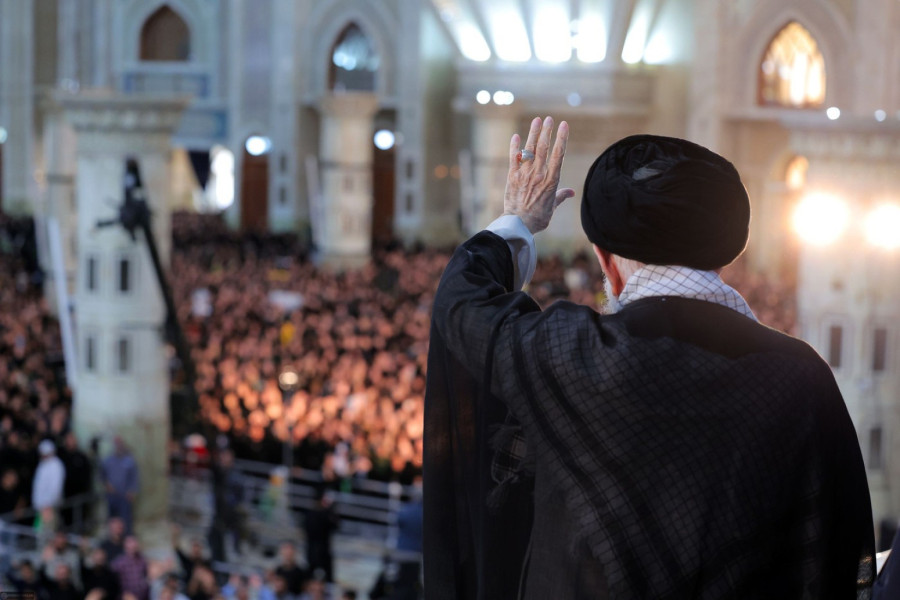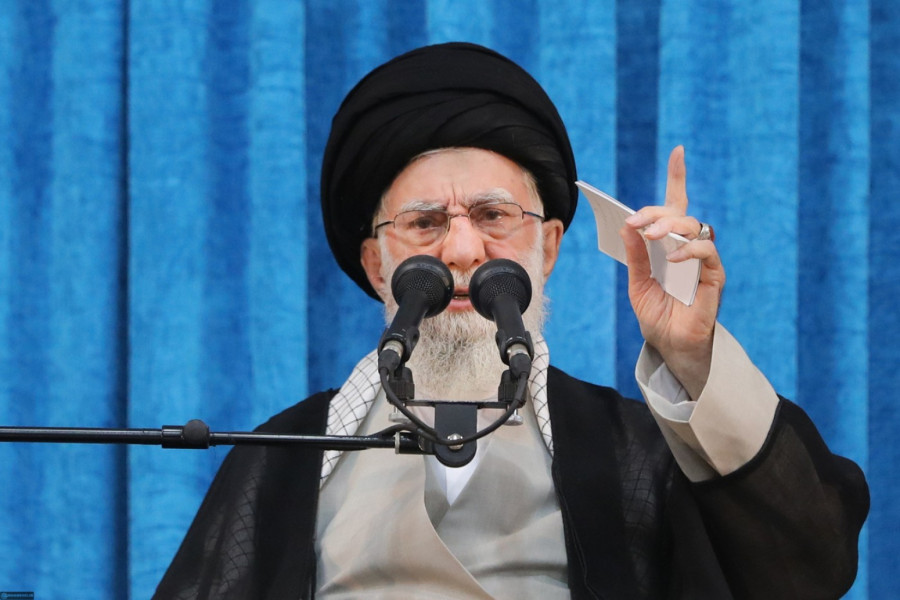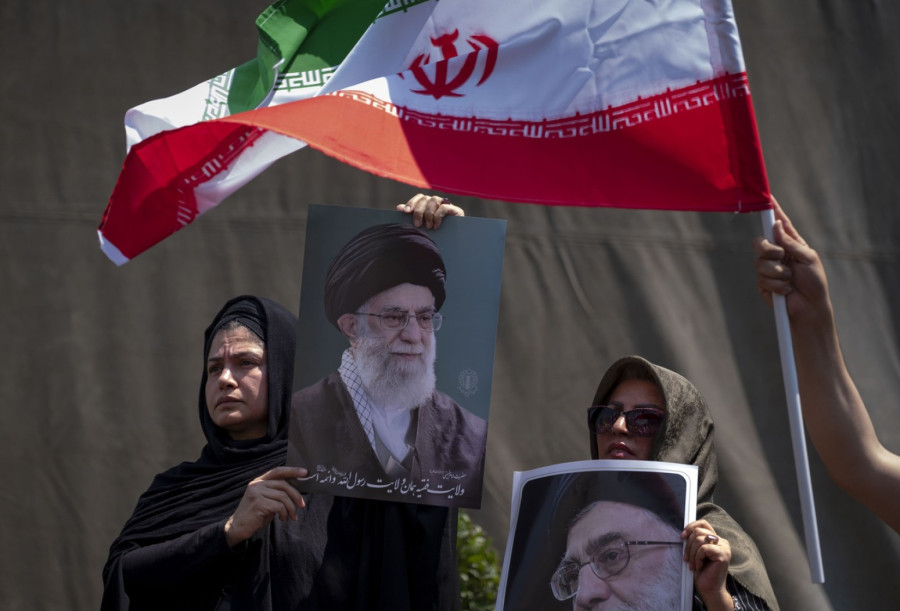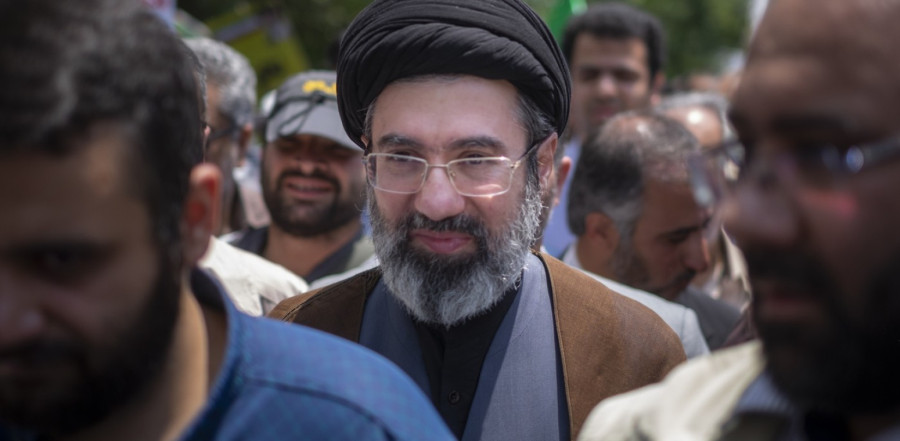According to the US agency, Khamenei witnessed the death of his top military and security advisers in Israeli airstrikes, which left large gaps in his inner circle and increased the risk of strategic mistakes, according to five people familiar with his decision-making process.
One of those sources, who regularly attends meetings with Khamenei, described the risk of miscalculations for Iran on defense and internal stability as"extremely dangerous."
He was left without his main advisers
Several senior military commanders have been killed since Friday, including Khamenei's top advisers from the Revolutionary Guards, Iran's elite military force: Guards Commander-in-Chief Hossein Salami, Air Force Chief Amir Ali Hadjizadeh, who led Iran's ballistic missile program, and intelligence chief Mohammad Kazimi.

The men were part of the supreme leader's inner circle, which numbers roughly 15-20 advisers, including Guard commanders, clerics and politicians, according to the sources, who include three people who participate or have participated in meetings with the leader on important issues and two close to officials who regularly attend.
This informal group gathers as needed, when Khamenei's cabinet invites relevant advisers to his compound in Tehran to discuss important decisions. The members are characterized by unwavering loyalty to him and the ideology of the Islamic Republic.
How much power does Khamenei have?
Khamenei, who was imprisoned before the 1979 revolution and wounded in a bombing before becoming leader in 1989, is deeply committed to preserving Iran's Islamic system of government and deeply distrustful of the West.
Under Iran's system of government, he has supreme command of the armed forces, powers to declare war, and can appoint or remove high-ranking officials, including military commanders and judges.
Khamenei makes the final decisions on important issues, although he values advice, listens carefully to differing opinions and often seeks additional information from his advisers, according to one source who attends the meetings, according to Reuters.

"Two things can be said about Khamenei: He is extremely stubborn, but also extremely cautious. He is very cautious. That is why he has been in power for so long," said Alex Vatanka, director of the Iran program at the Middle East Institute think tank in Washington.
"Khamnei is very capable of making a basic cost-benefit analysis, which ultimately boils down to one most important issue: regime survival."
The regime barely survived more than once
The focus on the regime's survival has been repeatedly put to the test, writes Reuters.
Khamenei used the Revolutionary Guards and the paramilitary Basij to quell national protests in 1999, 2009 and 2022. Although security forces have always managed to outmaneuver the protesters and restore state control, years of Western sanctions have caused widespread economic discontent, which analysts say could threaten long-term internal unrest.
The stakes are extremely high for Khamenei, who faces an escalating war with Israel.

Five people familiar with Khamenei's decision-making process stress that other insiders who were not targeted by the Israeli attacks remain important and influential, including top political, economic and diplomatic advisers.
Khamenei appoints such advisers to solve problems as they arise, directly extending his influence to a wide range of institutions – from the military and security to culture, politics and the economy. Such a way of working, including bodies nominally under an elected president, means that Khamenei's cabinet is often involved not only in the biggest issues of the state, but also in the implementation of smaller initiatives.
The role of Khamenei's son and possible successor
His son Mojtaba has become increasingly important in the process over the last 20 years, building a role that connects individuals, factions and organizations to coordinate specific issues. As a mid-ranking cleric seen by some insiders as a possible successor to his aging father, Mojtaba has built close ties to the Guard, giving him added power in Iran's political and security apparatus.

But Asghar Hejazi, the deputy for political security in Khamenei's cabinet, is involved in sensitive security decisions and is often described as the most powerful intelligence official in Iran.
Khamenei's chief of staff, Mohammad Golpayeghani, as well as former foreign ministers Ali Akbar Velayati and Kamal Harazi, and former parliament speaker Ali Larijani, remain trusted advisers on diplomatic and domestic issues such as the nuclear dispute.
Allies like a tower of cards
The loss of the Revolutionary Guard commander nevertheless decimates the top brass of the military organization that Khamenei has placed at the center of power since becoming supreme leader in 1989, relying on it for Iran's internal security and regional strategy.
While the regular army answers to the Ministry of Defense under an elected president, the Guard answers directly to Khamenei, provides the best military weaponry for its ground, air and naval forces and gives its commanders an important state role.
As he faces one of the most dangerous moments in the history of the Islamic Republic, Khamenei is further isolated by the recent losses of other key advisers in the region, as Iran's Axis of Resistance coalition has been hit hard by Israeli strikes.
Hezbollah leader Hassan Nasrallah, who was personally close to the Iranian leader, was killed in an Israeli airstrike last September, and Syrian President Bashar al-Assad was ousted by rebels in December.

